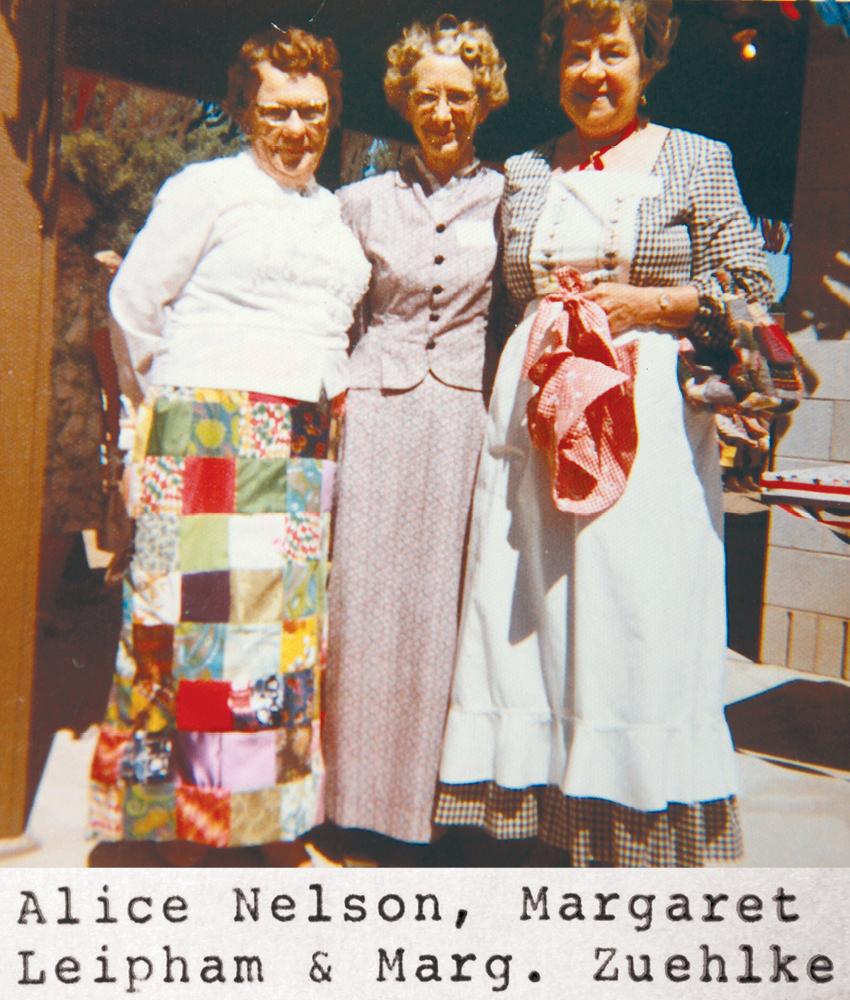In 1883, three families took the first wagon train through Eastern Washington to settle in what is now Lincoln County. These carpenters and woodcraftsmen came from Denmark and were commissioned to build churches and schools. The first settlers discovered the rolling hills and ash-rich soil beneficial for plentiful harvest yields. The wide-open spaces were ideal for raising livestock. Lands that were once spattered with sagebrush gave way to wheat, fruit, and other crops on mineral-rich farmlands.

Prior to the early family settlements, Aloysius Harry Harker and John and Emma Nicholls had platted land in Cottonwood Springs in 1880, inspired by the previous gold hunters of the 1860s. Harker established a store and saloon, and became the first postmaster. By 1882, John Colver Davenport had followed suit and platted land on the Northern hillside, establishing a store, saloon, and blacksmith shop. An unfortunate fire in 1884 destroyed everything in Davenport’s small town except the saloon. Eventually, the small town of Cottonwood Springs absorbed the residents of the destroyed hillside town and adopted the name of Davenport. The area continued to expand as new settlers arrived. Blocks of land were added, taking on the names of the area’s earliest families.

In February of 1889, grain and livestock were being transported via the Northern Pacific Railroad that was concurrently transporting new settlers into the area. In 1910, the depot was relocated and used for display. In 1893, the Bell Telephone Company installed one payphone in Davenport. This advance in communication enabled local settlers to connect to both Spokane and Fort Spokane. Two years later, Walla Walla printer, Frank M. Gray established the area’s first newspaper, the Lincoln County Times.
In 1898, Davenport residents were affected by another severe fire, and yet another in 1903. The town was also damaged by the flooding of Cottonwood Creek in 1910, 1930, and 1950. The early inhabitants of the area were not without their struggles.
The first Pioneer Days celebration began July 15, 1972 with the grand opening and dedication of the Davenport Museum. Visitors were delighted by a parade coordinated by the Historical Auto Society of Spokane and the Inland Empire. Fiddlers, dancing, exhibits and displays attracted and entertained citizens of Lincoln County and surrounding areas. Local artists demonstrated their skills in weaving, sewing, quilt making, candle dipping, and more. Native dancers of Wellpinit were also part of the original line-up.

The second annual celebration expanded to include horseshoe competitions, a team of Percheron, and old-timey music played from an Edison phonograph. Visitors could also watch a demonstration called The Village Blacksmith at Work.
Traditionally, homage was paid to members of the first families. Blue ribbons reading “Lincoln County Pioneer” were issued to those who proudly claimed to be the “oldest descendant” or “oldest pioneer couple,” as well as other notable titles. Relatives of the early settlers signed in with their age and family name. The grand marshal for the parade was then selected from these descendants.
Preserving this early Americana, Davenport continues to honor the pioneers in its annual Pioneer Days celebration. Some local merchants carry on the tradition of dressing in clothing of the early settlers. For nearly forty-five years, both residents and visitors have celebrated the pioneers and local history of Lincoln County. Some families of the first settlers continue to reside in the area, providing an ongoing authenticity to area history. Mid-July, every year, the earliest families are honored in
celebration and gratitude for the hardships and dedication of the original frontiersmen and women.

Special thanks to Tannis Jeschke for her extensive personal knowledge of Lincoln County history, volumes upon volumes of local history books, and for her enormous amount of help. Tannis has been the curator for the Lincoln County Museum since 2005.
Other informative links include: http://wagenweb.org/lincoln/ and http://www.historylink.org/.
